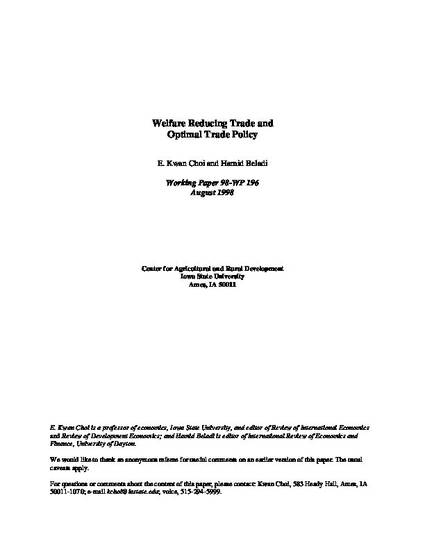
In contrast to some trade theorists' long-held beliefs, this study shows that free trade reduces the welfare of a small country with unemployment unless the free trade price of the importable falls below the autarky equivalent price. This study formulates a disequilibrium trade model with sticky money wages that has been generalized to fixed-price economies where output prices as well as wages are fixed, independent of excess demand or supply in the labor and goods markets. After describing the model and its solution, the authors discuss the implications of changing tariff rates on foreign products, construct a numerical example showing that their result is possible for many countries with unemployment, and analyze the issues of optimal tariff.
This working paper was published as Choi, E Kwan and Hamid Beladi, "Welfare reducing trade and optimal trade policy," Japan and the World Economy 10 (1998): 187–198, doi:10.1016/S0922-1425(97)00024-8.
Available at: http://works.bepress.com/ekwan-choi/11/
